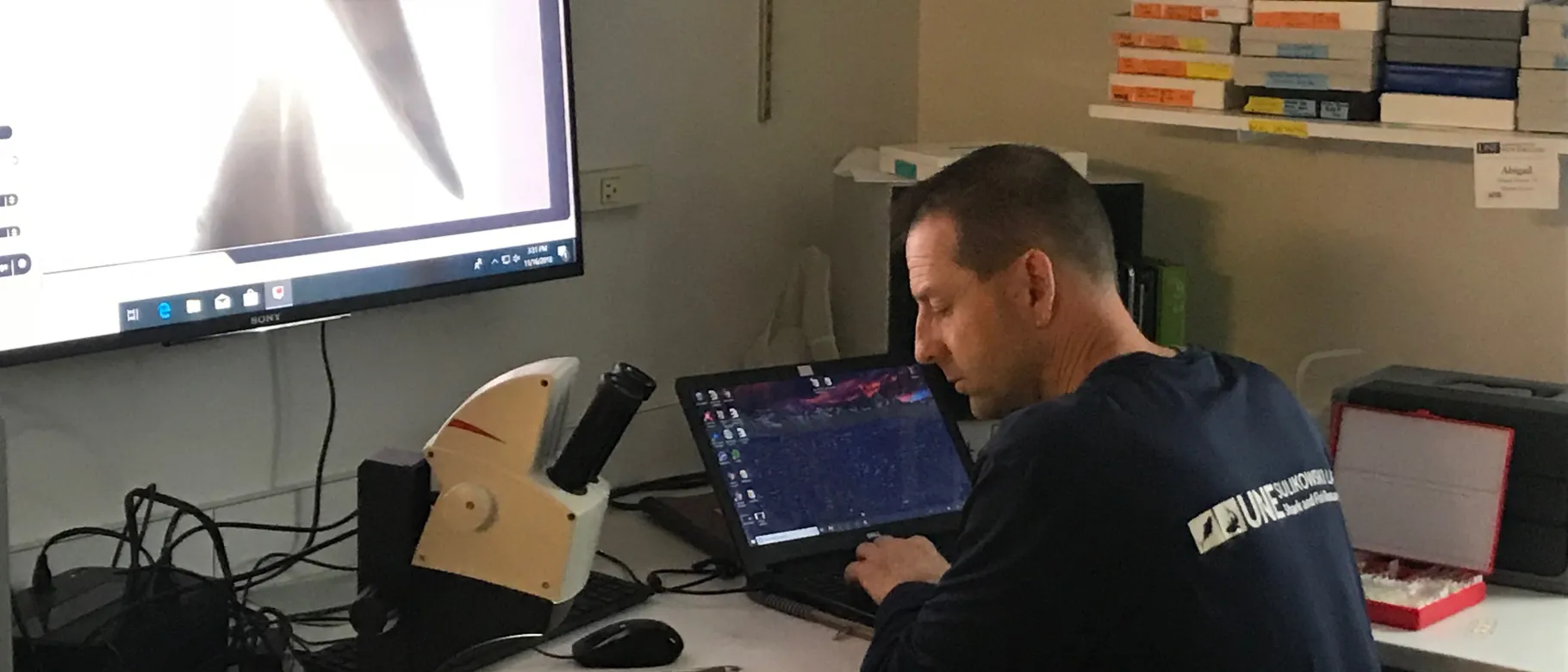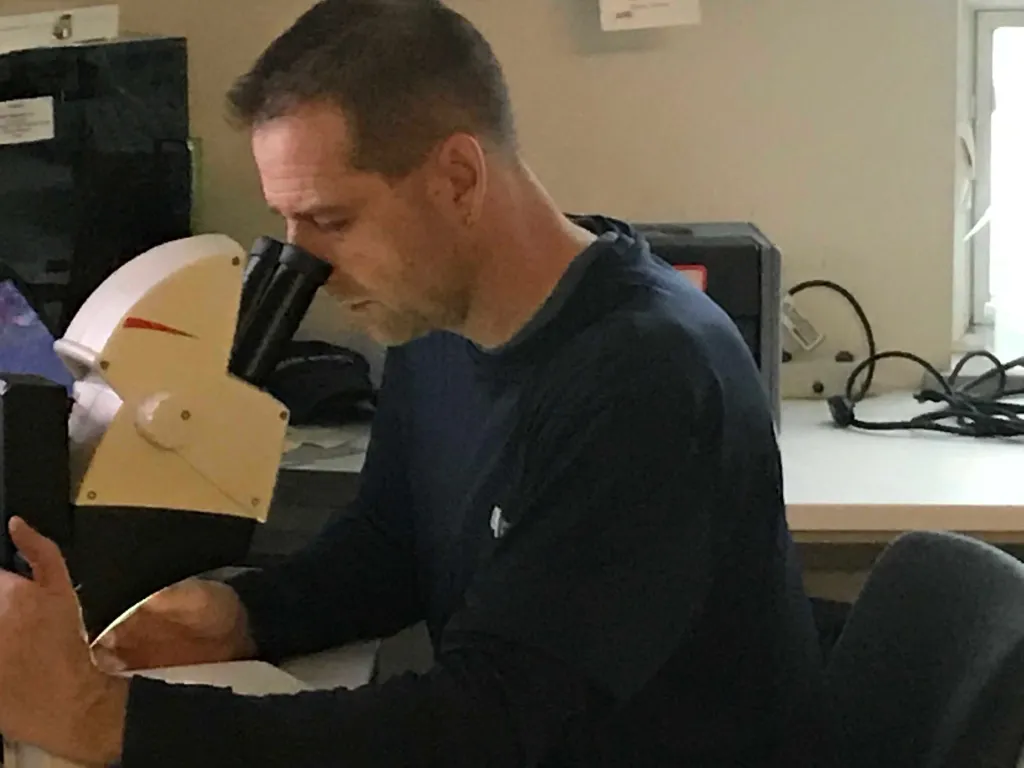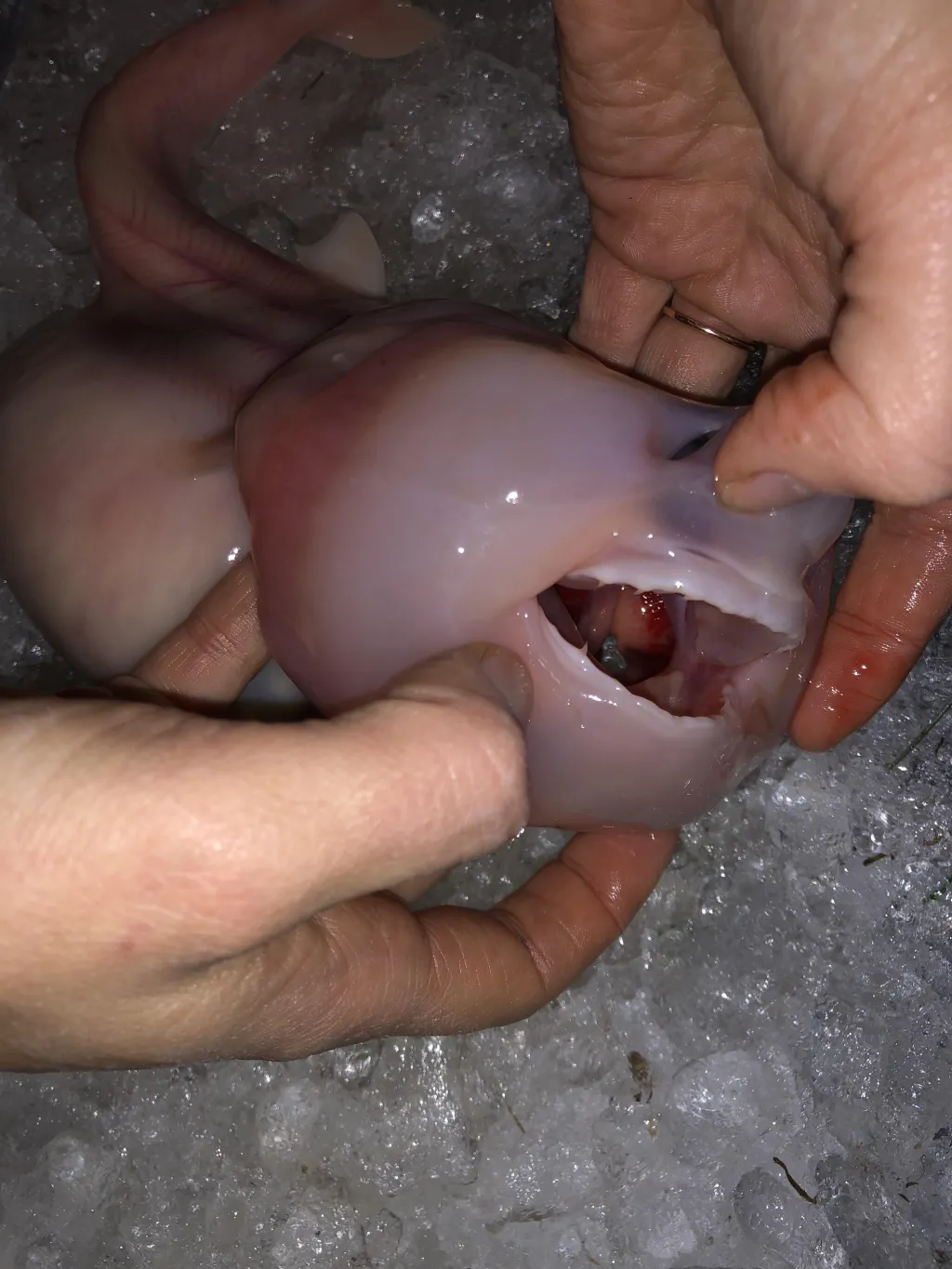Shark research by Sulikowski Lab featured in newspapers across the country

A discovery by the Sulikowski Shark and Fish Research Lab shows some species of sharks learn to hunt while still in the womb.
The embryos of great white, mako and porbeagle sharks develop teeth at an early stage and use them to chomp their mother’s unfertilized eggs.
Photos posted by the lab show developed teeth in a 12-week-old porbeagle shark embryo.
“It was ready to feed, they’re like a mini-predator,” Sulikowski said of the embryo. “That this species began to utilize the teeth in development to feed is the key discovery here. It’s really cool.”
The research was done in collaboration with Lisa Natanson of the NOAA Apex Predators Program, and involved legally captured specimens.
Sulikowski told The Charlotte Observer that the research is helping scientists unravel a multitude of mysteries involving endangered sharks.
“We still know very little about sharks, their biology and the tracking of their movements,” Sulikowski said. “Where do pregnant sharks go, and why do they go there? Where do they give birth, and when do they go there?”
The article was featured in more than 30 McClatchy newspapers across the country.
Read the article in the Belleville News-Democrat, Idaho Statesman, The Herald, The Fresno Bee, The News Tribune, The Kansas City Star, The Star-Telegram, The Miami Herald, The Sacramento Bee and WBTV

